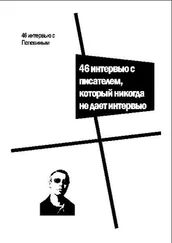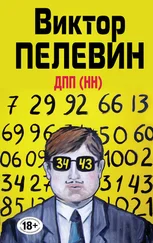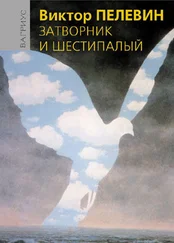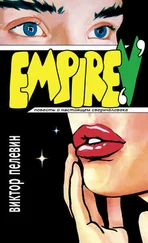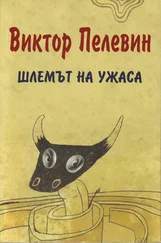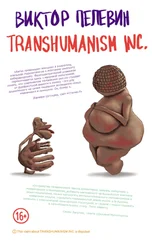Виктор Пелевин - Buddha's Little Finger
Здесь есть возможность читать онлайн «Виктор Пелевин - Buddha's Little Finger» весь текст электронной книги совершенно бесплатно (целиком полную версию без сокращений). В некоторых случаях можно слушать аудио, скачать через торрент в формате fb2 и присутствует краткое содержание. Жанр: Современная проза, на английском языке. Описание произведения, (предисловие) а так же отзывы посетителей доступны на портале библиотеки ЛибКат.
- Название:Buddha's Little Finger
- Автор:
- Жанр:
- Год:неизвестен
- ISBN:нет данных
- Рейтинг книги:5 / 5. Голосов: 1
-
Избранное:Добавить в избранное
- Отзывы:
-
Ваша оценка:
- 100
- 1
- 2
- 3
- 4
- 5
Buddha's Little Finger: краткое содержание, описание и аннотация
Предлагаем к чтению аннотацию, описание, краткое содержание или предисловие (зависит от того, что написал сам автор книги «Buddha's Little Finger»). Если вы не нашли необходимую информацию о книге — напишите в комментариях, мы постараемся отыскать её.
Buddha's Little Finger — читать онлайн бесплатно полную книгу (весь текст) целиком
Ниже представлен текст книги, разбитый по страницам. Система сохранения места последней прочитанной страницы, позволяет с удобством читать онлайн бесплатно книгу «Buddha's Little Finger», без необходимости каждый раз заново искать на чём Вы остановились. Поставьте закладку, и сможете в любой момент перейти на страницу, на которой закончили чтение.
Интервал:
Закладка:
‘Well?’
‘I just wanted to say… I have long known that the only real moment of time is «now». But I cannot understand how it is possible to fit such a long sequence of sensations into it. Does it mean that if one remains strictly within the bounds of this moment, without creeping over into the past or the fu-lure, it can be extended to such a degree that phenomena like those I have just witnessed will become possible?’
‘And just where are you thinking of extending it to?’
‘I have expressed myself incorrectly. Does it mean that this moment, this boundary between the past and the future, is itself the door to eternity?’
Chapaev jiggled the barrel of his Mauser and I fell silent. He looked at me for some time with an expression of something close to mistrust.
‘This moment, Petka, is eternity, and not any kind of door,’ he said. ‘So how can we say that it takes place at any particular time? When will you finally come round?’
‘Never,’ I replied.
Chapaev gaped at me, wide-eyed.
‘Well, look now, Petka,’ he said in astonishment. ‘Have you really understood at last?’
Finding myself back in my room, I began wondering how I could occupy myself to best calm my nerves. I recalled Chapaev’s advice to write down my nightmares, and I thought about my recent dream on a Japanese theme. There was a great deal in it that was incomprehensible and confused, but even so I could recall almost every detail. It began in a strange underground train with an announcement of the name of the next station - I could remember the name and even knew where it had come from: there could be no doubt that my consciousness, following the complex rules that govern the world of dreams, had created it in the instant before I awoke from the name of the horse that some soldier was shouting under my window. Furthermore, this shout had been reflected in two mirrors simultaneously, becoming transformed, in addition to the name of the station, into the name of the football team from the conversation with which my dream had ended. That meant that a dream which had seemed to me to be very long and detailed had in reality lasted no longer than a second, but after that day’s meeting with Baron Jungern and the conversation with Chapaev, nothing could amaze me any more. I sat at the desk, set several sheets of paper in front of myself, dipped my pen into the ink-well and traced the following words in large letters across the top of the first sheet: ‘Next station «Dynamo»!’
I worked for a long time, but even so I managed to write down less than half of what I could remember. The details that flowed out from my pen on to the paper possessed such a glimmer of decadence that towards the end I could no longer be certain whether I was actually writing down my dream or already improvising on its contents. I wanted to smoke; I took my papyrosas from the desk and went out into the yard.
Downstairs everything was in a state of bustling activity, as some of the newly arrived men formed themselves into a column; there was a smell of pitch and horse sweat. I noticed a small regimental orchestra standing at the back of the column - a few battered and dented trumpets and a huge drum hung on a strap round the neck of a tall strapping lad who looked like Peter the Great without his moustache. For some reason which was incomprehensible to me, the sight of this orchestra filled me with an inexpressible, aching melancholy.
The formation was commanded by the man with the sabre scar across his cheek whom I had seen from my window. I re called the sight of the snow-covered square in front of the station, the platform covered with red cloth, Chapaev slicing the air with his yellow-cuffed gauntlet and this man at the barrier nodding thoughtfully in response to the monstrous, meaningless phrases which Chapaev was showering on to the square formation of snow-covered soldiers. It was definitely Furmanov. He turned in my direction, but I ducked back into the doorway of the manor-house before he could recognize me.
I went upstairs to my room, lay on the bed and stared at the ceiling, I remembered the fat man with the shaven head and the beard who had been sitting by the fire in that world beyond the grave, and I recalled his name - Volodin. From somewhere deep in the recesses of my memory a large tiled loom emerged with baths secured to the floor, with this Volodin squatting naked and wet like a toad on the floor beside one of them. I felt as though I were just on the point of recalling something else, but then the trumpets sounded in the yard, the regimental drum boomed out, and the choir of weavers that I remembered so well from that night on the train roared out:
The deadly black baron and the white hussars
Want us to bow to the throne of the Tsars,
But from Siberia to the North British Sea
The strongest of all is the Red Army.
‘Idiots,’ I whispered, turning my face to the wall and feeling tears of helpless hatred for the world welling up in my eyes. ‘My God, the idiots… Not even idiots - mere shadows of idiots… Shadows in the darkness…’
8
‘But just why exactly did you think they were like shadows?’ Timur Timurovich asked.
Volodin twitched nervously, but the tight straps securing his arms and legs to the garrotte prevented him from moving, There were large drops of sweat glistening on his forehead.
‘I don’t know.’ he said. ‘You asked me what I was thinking just at that moment. Well, I was thinking that if there was any external observer around there to watch, he’d probably have thought we weren’t real, that we were nothing but flickering shadows and reflections from the flames - I told you there was a camp-fire. But then you know, Timur Timurovich, it all really depends on the observer
The camp-fire in the clearing had barely begun to blaze and was not yet giving enough tight to disperse the gloom and illuminate the figures sitting around it; they appeared to be no more than blurred spectral shadows cast on an invisible screen by the branches and sods of earth lying beside the fire. Perhaps, in a certain higher sense, that is precisely what they were - but since the last of the local neo-Platonists had abandoned his shame at possessing a body shortly before the Twentieth Party Congress, there was no one to reach such a conclusion within a radius of at least one hundred miles.
It would be better, therefore, to state the facts simply - sitting in the semi-darkness around the camp-fire were three hulking brutes. Their appearance, moreover, was such that if our neo Platonist were to have survived the Twentieth Congress and all of the insights that ensued therefrom, and to have emerged from the forest and approached the fire to discuss his topic with the new arrivals, he would very probably have suffered severe physical disfigurement as soon as the word ‘neo-Platonism’ disturbed the silence of the night. The signs that suggested this to be the case were numerous.
The most significant among them was the ‘Toyota Harbour Pearl’ amphibious Jeep standing close by; another was the immense winch on its bonnet - an item of absolutely no use whatever in normal life, but frequently to be found on the vehicles of gangsters. (Anthropologists who have devoted their efforts to studying the ‘New Russians’ believe that these winches are used as rams during the settling of accounts, and certain scholars even see their popularity as an indirect indication of the long-awaited resurgence of the spirit of the nation - they believe the winches fulfil the mystical role of the figureheads that once decorated the bows of ancient Slavonic barks.) In short, it was clear that the people who had arrived in this jeep were not to be trifled with, and it would be best not to risk uttering any superfluous words in their company. They were talking quietly among themselves.
Читать дальшеИнтервал:
Закладка:
Похожие книги на «Buddha's Little Finger»
Представляем Вашему вниманию похожие книги на «Buddha's Little Finger» списком для выбора. Мы отобрали схожую по названию и смыслу литературу в надежде предоставить читателям больше вариантов отыскать новые, интересные, ещё непрочитанные произведения.
Обсуждение, отзывы о книге «Buddha's Little Finger» и просто собственные мнения читателей. Оставьте ваши комментарии, напишите, что Вы думаете о произведении, его смысле или главных героях. Укажите что конкретно понравилось, а что нет, и почему Вы так считаете.

